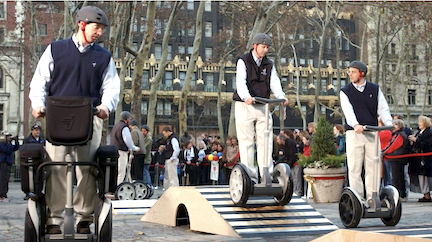
Opinion
By Dave Price
Daily Post Editor
I wonder whether the artificial intelligence craze, popularized by the new app ChatGPT, is just another gimmick that will fade away in the coming year.
 I’m not saying AI is unimportant, but it’s been a part of computer science since the 1960s.
I’m not saying AI is unimportant, but it’s been a part of computer science since the 1960s.
In popular culture, AI was introduced to the public in the 1968 masterpiece “2001: A Space Odyssey.” A psychotic AI computer named HAL kills off most of the crew of a spaceship headed to Jupiter. (Some say that HAL stood for IBM, just move each letter back one space.)
AI has become the hip, new thing because there’s now an app (and several imitators) who have made it accessible to consumers. We can all play with it and see its power. ChatGPT is the sexy big sister of little Siri.
Michael Nunez, editorial director for the tech news outlet VentureBeat, said at an AI forum in Mountain View on April 25: “I’m convinced this is bigger than Google.” Deja vu
Maybe so, but I’ve seen this before.
Go back to 1998 and 1999 and recall the hysteria over the Y2K bug.
The idea was that when the clock struck midnight on Dec. 31, 1999, and the new millennium begins, computers would malfunction because of a programming bug.
Unfortunately, you couldn’t look inside a computer and see if the bug was in there. Nobody really knew if it existed or not. But the fearmongering was insane. People were told that the doors of prisons “might” spring open at the stroke of midnight. Or that computers at banks “might” zero out people’s accounts. Or that dams “might” open up and flood everyone downstream.
I say “might” because the fearmongers always hedged their apocalyptic predictions.
All this ominous talk scared government so much that state and federal laws were passed requiring public agencies, and the private sector in some cases, to replace their electronics with Y2K-compliant devices.
With the help of the Y2K fearmongers, Silicon Valley was selling computers and software at a record clip.
When the big moment came, everything was fine. The lights stayed on. The prison doors remained locked. The dams didn’t burst open. Society didn’t crumble.
The next big thing in the Silicon Valley hive was the Segway scooter.
Before its introduction in 2002, there was a lot of hype about how it would change the world.
Time magazine on Dec. 2, 2001 gushed that when the scooter, then known as Ginger, hit the market, it would be the biggest thing since the Apple Macintosh.
Famously, venture capitalist John Doerr said the Segway would be bigger than the internet. Steve Jobs was quoted as saying it was “as big a deal as the PC” and it would lead to the redesign of cities.
It didn’t work out that way. Sales were terrible. Seqway inventor Dean Kamen, after struggling to get people to adopt his glorified electric scooter, sold what was left to his company in 2009 to a British investor, who later died in an accident on a Segway.
It always pays to be suspicious when the media starts hyping something.
AI is like any other technology – it can be used for good or bad. If AI is integrated into the workplace to do the busy work in our lives, we could have more free time. AI could also turn us into slaves or kill us like HAL.
My advice is to remember history so that you don’t repeat it.
Editor Dave Price’s column appears on Mondays. His email address is [email protected].

I think you’ll live to regret these words. AI will enhance all aspects of computing and our daily lives. Just yesterday Google said it is re-doing its search engine to use AI. Pretty soon you won’t be able to go to a restaurant without giving your order to an AI bot. Your kids will be taught by AI teachers. And every business will replace all clerical activities with AI. And that’s just the beginning.
I’m not worried about Artificial Intelligence. But Human Stupidity scares me everyday.
I love the both comments.
I had a similar reaction to the “Metaverse”. Even more than AI, the metaverse seems like a solution in search of a problem.
Agree completely. Fearmongering always accompanies any new technology – we’re all going to be out of work! – but the dire predictions never pan out. Despite the very real damage to the economy, supply chains, and loss of educations over the past three years due to the Covid lockdowns, the economy tends to grow and add net new jobs with the introduction of “job destroying” technologies that make us more productive and our lives easier.
Yes, some people lose their jobs from any new product or service, but most gain in the long run and the relatively few displaced workers have to maintain their skills and keep learning. The alternative is protectionism which stifles growth and reduces opportunities for future generations.
I think it’s hilarious that Biden brags that he’s created 12 million new jobs when those are simply the jobs that were lost during the Covid lockdowns. I guess he thinks we’re stupid.